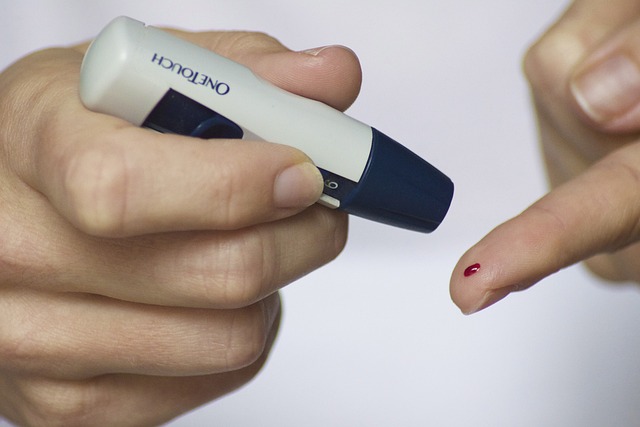Vitamin B12 deficiency, impacting UK citizens across demographics due to age, diet, and health conditions, manifests through various symptoms including fatigue, memory loss, balance issues, mood changes, anaemia, and tingling/numbness. The UK General Health Blood Test plays a vital role in early detection by measuring homocysteine and vitamin B12 levels; elevated homocysteine indicates a deficiency affecting red blood cell production. Interpreted alongside health status and symptoms, this test helps healthcare providers decide if dietary changes or supplementation are required to prevent potential complications.
“In the UK, Vitamin B12 deficiency is a growing concern, impacting individuals across various demographics. This comprehensive guide delves into the crucial aspect of diagnosing this deficiency through blood tests—a key component of maintaining optimal UK general health. Understanding symptoms and risk factors is essential, as is interpreting your Vit B12 blood test results accurately. By exploring these elements, you’ll gain valuable insights into managing and preventing deficiency.”
- Understanding Vitamin B12 Deficiency: Symptoms and Risk Factors
- The Role of Blood Tests in Diagnosing Deficiency
- Interpreting Results: What Do Your Vit B12 Blood Test Figures Mean?
Understanding Vitamin B12 Deficiency: Symptoms and Risk Factors
Vitamin B12 deficiency is a growing concern in the UK, with many individuals at risk due to various factors. It occurs when the body doesn’t have enough vitamin B12, which is essential for maintaining healthy nerves and red blood cells. This nutrient plays a vital role in energy production and DNA synthesis, so a deficiency can lead to a range of symptoms affecting multiple systems in the body.
Symptoms may include fatigue, weakness, memory loss, difficulty balancing, and changes in mood or behaviour. It can also cause anaemia, leading to shortness of breath, dizziness, and pale skin. Surprisingly, some people with B12 deficiency experience tingling or numbness in hands and feet. Certain groups are at higher risk, including older adults, vegans/vegetarians, those with gastrointestinal disorders, and individuals who have had their stomach or small intestine surgically altered. A UK General Health Blood Test can help identify these deficiencies early on, allowing for prompt treatment to prevent more severe health complications.
The Role of Blood Tests in Diagnosing Deficiency
In the diagnosis of Vitamin B12 deficiency, blood tests play a pivotal role, offering a window into the body’s nutritional status. A UK General Health Blood Test is a common procedure used to assess whether there’s a deficiency or not. This test typically measures the level of homocysteine and vitamin B12 in the blood. Elevated levels of homocysteine can indicate a B12 deficiency as the body struggles to produce red blood cells without adequate vitamin B12. The test results, alongside symptoms like fatigue, weakness, and neurological issues, help healthcare professionals make an accurate diagnosis.
Furthermore, specific blood tests can directly measure vitamin B12 levels in the body. These tests provide a direct assessment of how much vitamin B12 is present, aiding in the early detection of deficiency even before symptoms appear. Early identification is crucial as Vitamin B12 deficiency can lead to various health complications if left untreated.
Interpreting Results: What Do Your Vit B12 Blood Test Figures Mean?
When interpreting your UK General Health Blood Test results for Vitamin B12 deficiency, it’s important to understand what each figure represents. Normal levels typically range from 140 to 900 picograms per millilitre (pg/mL) in adults. If your result falls below this range, it may indicate a deficiency. However, it’s not just about the number; the context matters too.
A slightly low level might not cause immediate symptoms but could be an early warning sign, prompting further investigation. On the other hand, significantly lower levels (below 140 pg/mL) can lead to anaemia and neurological issues. Your healthcare provider will consider these factors along with your overall health and symptoms to determine if further action is needed, such as dietary changes or supplementation.
In light of the above, vitamin B12 deficiency testing through UK general health blood tests is a crucial step in maintaining optimal health. By understanding symptoms, risk factors, and interpreting test results, individuals can proactively address potential deficiencies. Regular screening plays a vital role in ensuring adequate nutrition and overall well-being.
